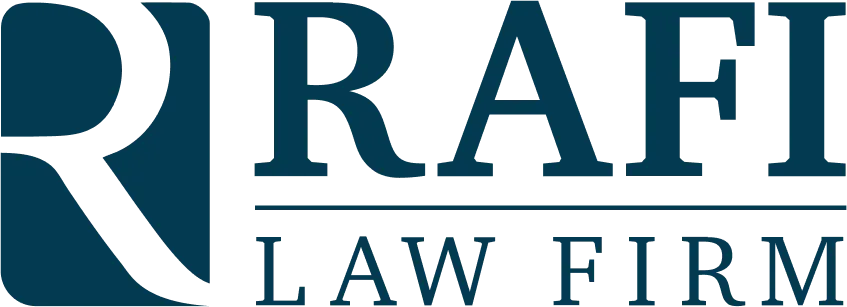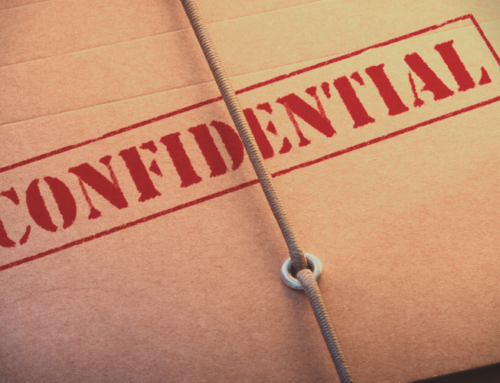In part one, we discussed how to make the defense meet its burden. Part two covered how to overcome proposed Confidentiality/Protective Orders based upon defense claims/objections of “trade secret” or “proprietary information.” In this part, we look at some common terms the defense proposes in their Confidentiality or Protective Orders to gain an unfair strategic advantage and how to expose the prejudice that will result.
Determining Protective Orders
Assuming that the defense has first met its burden of establishing good cause for entry of the protective order through facts and evidence (and also—where applicable—met its burden to show through facts and evidence that the materials they seek to protect actually do meet the definition of “trade secrets”), the court must then use its discretion in determining whether a protective order is actually necessary and, if so, fashion the terms of the order. Alexander Props. Group v. Doe, 280 Ga. 306, 626 S.E.2d 497 (2006).
Before a protective order is granted, the moving party must make a showing of facts that demonstrate the need to protect it from annoyance, embarrassment, oppression, or undue burden or expense. Alexander Props. Group v. Doe, 280 Ga. 306, 626 S.E.2d 497 (2006). Ironically, in most cases, the defense’s proposed Confidentiality Order would cause tremendous one-sided oppression, and undue burden and expense to the plaintiff and his/her attorneys, which alone should be enough for the court to deny it.
When Is A Protective Order Called For?
Protective Orders are intended to be “protective—not prohibitive”, and they should not be entered when the effect is to frustrate and prevent legitimate discovery. Intl. Service Ins. Co. v. Bowen, 130 Ga.App. 140, 144, 202 S.E.2d 540 (1973); Deloitte Haskins & Sells v. Green, 187 Ga. App. 376, 378 (1988). For example, where the defense’s proposed Protective Order allows the defense to simply designate any document or material as “confidential” and then shift the burden to the plaintiff to not only seek the court’s intervention, but also shoulder the burden to prove why the materials are not confidential, the effect is to frustrate and prevent legitimate discovery. How could the plaintiff—who has little knowledge of what the documents are or what’s in them—ever carry the burden to prove the defense’s designation was wrong? It’s nearly impossible to do without the documents themselves, which the defense is withholding.
Elements To Look Out For
If the Legislature had intended to place the burden on the plaintiff to establish that materials sought in discovery were not the confidential and proprietary trade secrets of the opposing party, it would have crafted the plain language of O.C.G.A. § 9-11-26(c)(7) to so state. It did not so intend, and the statute reflects the intent of the Legislature to place the burden on the party withholding documents and information to establish good cause for keeping such materials confidential. Bridges v. 20th Century Travel, Inc., 149 Ga. App. 837, 838 (1979) (holding application of the discovery laws must be liberally construed so as to prevent giving a litigant an effective veto of his adversaries’ attempts at discovery).
Additionally, be on the lookout for terms that require deponents (or witnesses giving statements) to first sign an affirmation under oath confirming that they have read and agree to be bound by the defense’s Confidentiality Order before the witness/deponent can be questioned about documents or materials the defense has previously designated “confidential”. As a practical matter, no sane witness would ever voluntarily choose to agree to sign and be legally bound by a document that could subject them to sanctions from the court.
On top of that, no witness would ever voluntarily sign such a document in order to choose to then submit to questioning by plaintiff’s counsel under oath about “confidential” documents. The practical effect of allowing witnesses to choose whether they will agree to be bound by the confidentiality/protective order or to choose to subject themselves to questioning under oath about documents marked “confidential” is that no witnesses will agree and plaintiff’s counsel will be unable to question any witnesses about materials previously stamped “confidential” by defense counsel (except witnesses prepared in advance by defense counsel who are favorable to the defense, of course).
Consequences Of Protective Orders
If you agree to be bound by this term, you would have to start the deposition of the witness, determine the witness will not agree to be bound by the Confidentiality Order, adjourn the deposition, move the court for a determination that the materials that would be the subject of the questioning are not “confidential” or “proprietary” “trade secrets” (which is precisely the issue before the court on the defense’s motion for protective order), which would then be followed by the filing of supporting memoranda and perhaps oral argument; after which plaintiff’s counsel would have to finally reconvene and complete the deposition.
By the time the deposition reconvenes, defense counsel would have had the benefit of thorough briefing by plaintiff’s counsel on the topics and lines of questioning planned by plaintiff’s counsel for the deposition, as well as the specific documents plaintiff’s counsel plans to use in the deposition, and defense counsel would have had ample opportunity to meet with and prepare the deponent on these points and documents in advance of the witness’ deposition. Not only would this procedure cause a tremendous increase in the cost and time (both of counsel and of the Court) needed to complete depositions of current and former employees, but this would undercut and undermine the effectiveness of the sworn deposition as a truth-seeking tool and run afoul of O.C.G.A. §24-1-1, which holds:
The object of all legal investigation is the discovery of truth. Rules of evidence shall be construed to secure fairness in administration, eliminate unjustifiable expense and delay, and promote the growth and development of the law of evidence to the end that the truth may be ascertained and proceedings justly determined.
Further, this unnecessary and time consuming procedure confers a tremendous strategic advantage upon defense counsel by forcing plaintiff’s counsel to divulge fact and opinion work product to the defense prior to a witness’s discovery deposition. Such a procedure is in clear contravention of Georgia law, which recognizes the privileged and sacrosanct nature of an attorney’s fact and opinion work product.
Additional Concerns
Also, be on the lookout for terms that state that “a deponent may—during the deposition—be shown and questioned about “confidential” documents if the deponent already knows the confidential information contained therein”, which means that the witness can simply disavow prior knowledge of the “confidential” materials and thereby preclude questioning from plaintiff’s counsel. At that point, Plaintiff’s counsel could not disclose the “confidential” materials to the witness or question the witness about the “confidential” materials unless the witness voluntarily chooses to agree to sign and file with the Court the form agreeing to be bound by the Confidentiality Order, which no sane witness would ever do.
You will often find that the defense is asking the court to enter a Confidentiality Order that will—when applied—provide the defense attorneys and employee witnesses with an advance roadmap of plaintiff’s counsel’s deposition topics and questions that the defense is otherwise not entitled to under Georgia law, and/or which give the defense the ability to veto such questioning until plaintiff’s counsel reveals protected fact and opinion work product, which is obviously protected from disclosure.
The attorneys at Rafi Law Firm have extensive experience in handling all types of cases, including referrals from other attorneys. We have a proven history of obtaining substantial recoveries for those injured. To speak with someone at our firm, call 404-800-1156 to discuss your case today.





